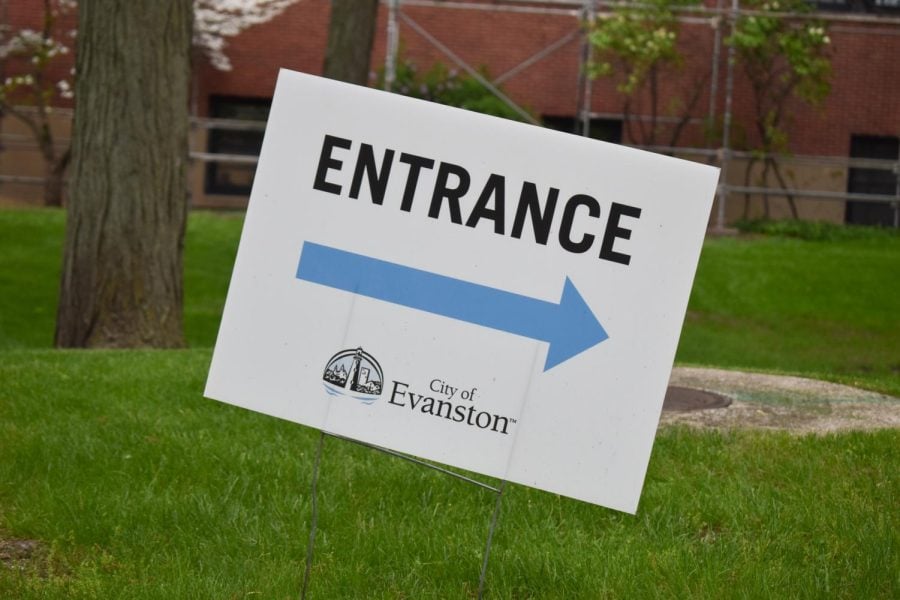City Council approves referendum on ranked-choice voting for November ballot
Daily file photo by Jacob Wendler
A sign outside the Lorraine H. Morton Civic Center. On Monday, City Council passed a referendum to put ranked-choice voting on the ballot this November.
July 12, 2022
City Council approved a referendum Monday that will let Evanston residents vote this November on whether to adopt ranked-choice voting in future elections.
If residents support ranked-choice voting on Nov. 8, the voting system will be used to elect the mayor, city clerk and councilmembers during the 2025 municipal elections. The council voted 7-0 to put the referendum on the ballot, with two councilmembers abstaining.
“What we’re voting on tonight is not ranked-choice voting, but whether or not we should put a referendum on the ballot,” Ald. Jonathan Nieuwsma (4th) said. “So we have plenty of time to have the discussion about, ‘Is it a good idea? Is it a bad idea?’”
Ranked-choice voting is a system where voters rank each candidate on their ballot instead of casting a vote for a single candidate. If no candidate wins the majority of first-preference votes, the candidate with the fewest first-preference votes is eliminated, and a new tally is calculated with the second choices on those ballots lifted to first place. This process is repeated until someone has the majority of first-preference votes.
Ald. Devon Reid (8th) disagreed with Nieuwsma’s argument that the council should hand the decision to voters.
“If that’s the case, then any referendum that comes before us, it would be the same attitude that we’re just gonna place it on the ballot because we’re gonna let the voters decide,” Reid said.
Jason McDaniel, a political science professor at San Francisco State University, said at the meeting that ranked-choice voting doesn’t always lead to higher turnout like many advocates suggest it does. McDaniel said adding more complexity to the voting process is a barrier.
Eric Friedman of the New York City Campaign Finance Board pushed back on McDaniel’s claims, citing New York’s campaign to educate voters about ranked-choice voting. New York used ranked-choice voting for its 2021 elections, making it the largest jurisdiction in the country to implement ranked-choice voting.
But Reid questioned Friedman’s claim and said ranked-choice voting only impacted election outcomes in two New York city council races out of more than 50.
During public comment, Evanston residents emphasized that voters should learn about the system before they vote on it.
“It’s essential that voters understand how these new policies would work and how they can use it to ensure that their elected officials truly and accurately reflect their preferences,” said Jay Young, the executive director of nonpartisan government watchdog group Common Cause Illinois.
After councilmembers discussed the proposal for more than a half-hour, Ald. Peter Braithwaite (2nd), in his final meeting before leaving the council, called to close the debate and move to a vote.
Ald. Bobby Burns (5th), who was waiting to speak about the issue, said ending the discussion was “profoundly disrespectful.” Reid agreed, telling residents to “remember this moment” when they cast their votes in November.
Burns recommended voters research the issue for themselves before heading to the polls.
“Supporters of ranked-choice voting aren’t going to be at the polls telling people we want you to weigh all your options carefully,” Burns said. “Unless, as a city, we’re willing to contribute funds to make sure that there’s a fair and unbiased presentation of the facts during this period before the vote happens.”
Email: saulpink2025@u.northwestern.edu
Twitter: @saullpink
Related Stories:
— Cook County residents take on volunteer work to coordinate local elections



